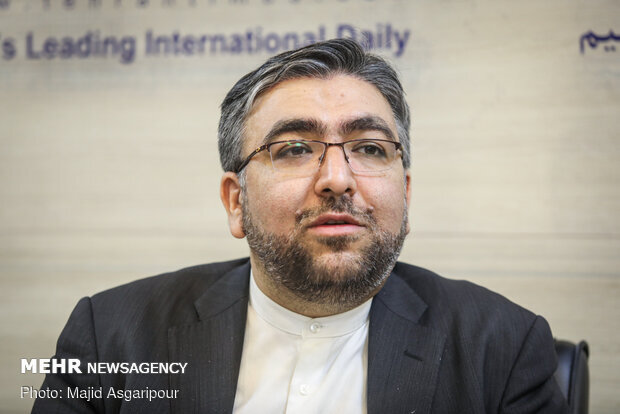Iran never abandons interests in JCPOA negotiations: MP

TEHRAN- Spokesman for the National Security and Foreign Policy Committee of the Iranian Parliament stressed on Wednesday that the Islamic Republic will not pull back from its position and interests in the JCPOA talks.
Speaking with Mehr News Agency, Abolfazl Amouei underlined that the U.S. is to blame for poor advancement in the JCPOA talks.
He added that “the conditions for the U.S. comeback have been the main topic of our conversations for the last 18 months. The American side left the JCPOA accord and then declared its willingness to rejoin the deal.”
Amouei went on to underscore, “It was the American side that, owing to internal circumstances, including (congressional) elections, withdrew from the process of advancing the discussions more swiftly, and since then, the pace of the negotiations has been hampered due to their wrong political interpretation.”
Amouei speculated that perhaps the Westerners believed the recent unrest in Iran would help them politically or degrade Iran's negotiating position.
Now that public security conditions have improved in Iran, the West can comprehend that Iran does not intend to compromise on its interests in the talks, he added.
He continued by saying that a deal would soon be reached if the U.S. shows genuine political will, observing Iran’s redlines and legitimate demands.
Amouei stated that the agreement's conclusion is dependent on the U.S.'s political will, and that if the other side is willing to return to its former duties and successfully lift the sanctions, Iran is also willing to take compensatory steps.
“If the other side returns to its obligations and lift the sanctions we will also take compensatory measures,” he remarked.
"The conversations have never been interrupted, and they have been monitored through mediation, conveying signals, and informal draft texts," the Iranian legislator remarked.
Amouei noted that the Europeans' evaluation of Iran's internal developments is inaccurate.
"The excessive influence of anti-Iran opposition currents in influential European countries' decision-making has created a false image that Iran is willing to make concessions, which needs to be changed and Westerners must be realistic. It is certainly feasible to converse again and strengthen communication under regular circumstances,” he pointed out.
